Business
Nigeria in fruitless search for foreign investment?
“Violent crime—such as armed robbery, assault, carjacking, kidnapping, hostage taking, roadside banditry, and rape—is common throughout the country.
Published
10 months agoon
By
Marcel Okeke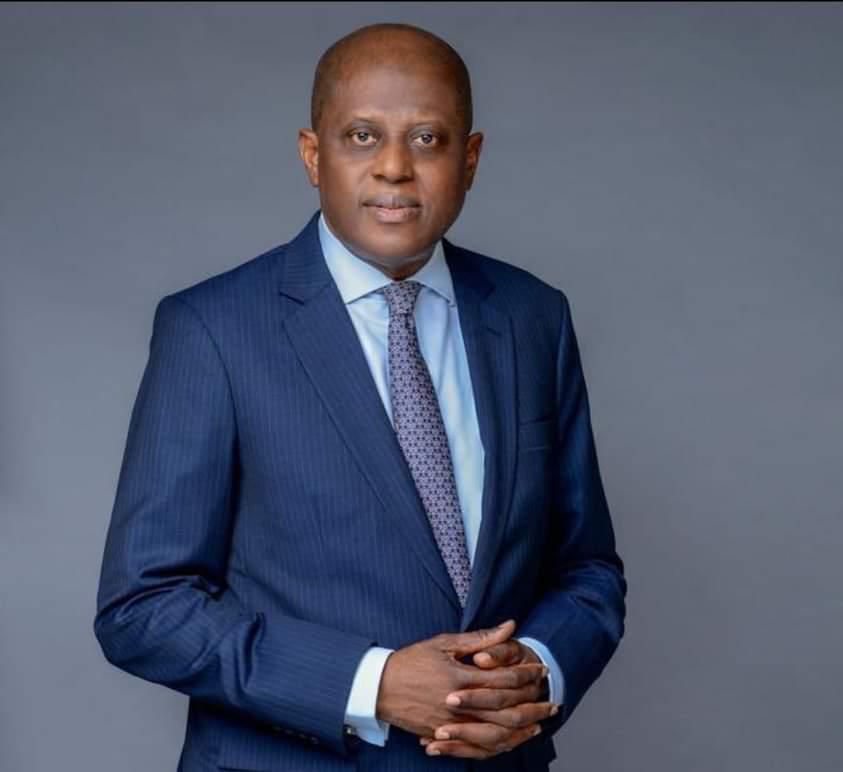
By Marcel Okeke
Senator Adams Oshiomhole practically shocked the entire world the other day, during the screening of the new helmsman at the Central Bank of Nigeria (CBN) Dr. Olayemi Cardoso, and his deputies at the Chambers of the Nigerian Senate. Oshiomhole had told his colleagues, the soon-to-be bosses of the CBN and their teeming well-wishers that the fact that “Western institutions are clapping for Nigeria” regarding its economic policies means that “we are not getting it right.”
For emphasis, Oshiomhole who is also a former President of the Nigeria Labor Congress (NLC) and two-term governor of Edo State said each time “the West” is clapping for us as regards our economic policies, it means we are not getting it right. “We want Nigerians to be the ones clapping for us,” he emphasized.
And truly, the economic policies of the President Bola Ahmed Tinubu administration have been (perhaps unwittingly) plunging the Nigerian economy into the woods. Apparently being goaded and prodded by the International Monetary Fund (IMF) and the World Bank (agents of “the West”), the Tinubu administration has removed fuel subsidy and unified the exchange rates of the Naira (in the forex market).
These policies and their adjunct initiatives have so far unleashed untold hardship and pains on Nigerians. Rather than counting any gains of its policies, the Government has been battling with cobbling together some packages of mere “palliatives” to assuage the suffering and impoverishment of the citizenry.
In this milieu and wild ‘applause’ from the IMF and the World Bank, the Tinubu government has practically been trotting the globe to woo foreign investors to come to invest in Nigeria. Thus, at the recent 2023 United Nations General Assembly (UNGA) in the US, President Tinubu and his brand new cabinet spent all their time scouting for investors (Nigerians and foreigners) to come to invest in Nigeria. For close to one week, the entire Nigerian contingent was involved in ‘town hall meetings’ with Diaspora Nigerians and parleys with other top businesspersons attending the confab from wherever.
Unsurprisingly, a few days after the UNGA jamboree, the United States issued a strongly worded travel advisory to its citizens against making trips to Nigeria. Specifically, on September 20, the US Department of State warned US citizens “to reconsider travelling to Nigeria due to increased risk of crime, terrorism, civil unrest, kidnapping and armed gangs in the country.” The “do not travel” warning specifically mentioned Borno, Yobe, Kogi, and northern Adamawa states due to terrorism and kidnapping; Bauchi, Gombe, Kaduna, Kano, Katsina, Sokoto, and Zamfara states due to kidnapping.
A similar warning was issued for Abia, Anambra, Bayelsa, Delta, Enugu, Imo, and Rivers (with the exception of Port Harcourt) due to crime, kidnapping, and armed gangs. While placing these states on Level 4—the highest risk category—the US warned that the security situation in those states was fluid and unpredictable due to widespread terrorist activity, inter-communal violence, and kidnapping.
“Violent crime—such as armed robbery, assault, carjacking, kidnapping, hostage taking, roadside banditry, and rape—is common throughout the country. Kidnapping for ransom occurs frequently, often targeting dual national citizens who have returned to Nigeria for a visit, as well as US citizens with perceived wealth. Kidnapping gangs have also stopped victims on interstate roads,” the advisory stated.
A few days before the UNGA outing, President Tinubu made a similar trip to India at the invitation of that country’s Prime Minister, Narendra Modi, just to be one of some African Heads of Government to participate in the G-20 meeting being hosted by the ‘Land of Nehru’. Ahead of the days for the meeting, Tinubu practically ‘couriered’ almost all members of his cabinet from their inauguration venue to India, again, to scout for foreign investors.
And for a couple of days before the G-20 meeting proper, the Nigerian contingent was deluding itself with ‘marketing Nigeria’ to Indian investors and Diaspora Nigerians in that country. The Tinubu team was so engrossed in the ‘marketing Nigeria’ business that it began flaunting a huge sum of US$14 billion as an “already booked” and sealed business deal during the outing.
Alas, where are these much-flaunted foreign direct investments (FDIs)? Rather than any such investments coming into Nigeria, many multinationals that have been doing business in Nigeria for decades are closing down—and leaving the country. The policies of the Tinubu administration in its almost five months have gotten them asphyxiated, and they are moving to more business-friendly environments. The British pharmaceutical giant, GlaxoSmithKline (GSK) which has operated in Nigeria for over half a century, closed shop recently. Similarly, PZ Cussons Nigeria—a household name in Nigeria, also left the country recently.
Other such big corporate names are almost being rendered bankrupt by the import and impact of the Naira floatation/devaluation policy. The two leading breweries—Nigerian Breweries Plc and Guinness Nigeria Plc—each reported huge losses in their audited first-half 2023 financial statements. The same with Unilever Nigeria Plc, Cadbury’s Nigeria Plc, Nestle Nigeria Plc, MTN (Telecom) Nigeria, and a host of others.
Each one of them reported losses owing to “foreign exchange exposure” during the first half of 2023. Although some, like Nigerian Breweries, have attempted to whittle their losses through upward adjustments of the prices of their products, they are being confronted by consumer resistance due to largely weakened purchasing power. All things being equal, it is not unlikely that the second half of 2023 would even be worse than the first half in the finances of these companies.
This is because the losses in their financial statements are policy-induced: the sharp and sudden weakening of the Naira exchange rate vis-à-vis the dollar remains unforeseen and unplanned. Similarly, the quantum jump in the cost of doing business which is traceable to fuel subsidy removal took businesses by surprise—against their budgets and forecasts for the year. Prices of petrol, diesel, and other production inputs and machinery have practically gone through the roof since end-May 2023; and businesses have been hard hit.
It is therefore not an irony that while Tinubu and his cabinet are junketing all over the place looking for foreign investors, reports from the National Bureau of Statistics (NBS) show that Foreign Direct Investments (FDIs) inflow into Nigeria is on a sharp decline. Specifically, of the $1 billion foreign capital that came into Nigeria (capital importation) in the second quarter of 2023, FDI accounted for the least: only 8.35 per cent or US$86.03 million. Portfolio investment (‘hot money’) accounted for 10.37 per cent or US$106.85 million while ‘Other investments’ (trade credits, loans, currency deposits, and other claims) accounted for the lion’s share: 81.28 per cent or US$837.34 million.
While total capital importation stood at US$1.53 billion in the second quarter of 2022, by end-June 2023, it has dropped by 33 per cent to stand at about only US$1.0 billion. This remarkable decline between the two corresponding quarters underscores the mounting challenges in the way of foreign investment inflow into Nigeria. These challenges include the very high cost of doing business in Nigeria, the unstable political and security environment (as itemized in the US travel advisory), and widespread corruption, especially among government agencies.
Ironically, the United States which is warning its citizens against travelling to Nigeria, occupied the topmost position (by country of origin) as a source of capital importation into Nigeria, according to the NBS data. During the second quarter of 2023, US$271.92 million investment or 26.39 per cent of total capital importation into Nigeria came from the US. Therefore, the US stance (travel advisory) vividly shows that the proverbial fish has started ‘rotting’ from the head: what becomes of the rest of the body? Others would most likely queue behind the US!
- Okeke, a practising Economist, Business Strategist, Sustainability expert, and ex-chief Economist of Zenith Bank Plc, is a National Daily Columnist. He can be reached via: [email protected]
You may like
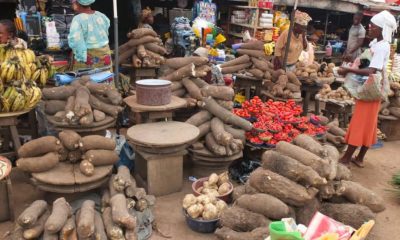

Easter: Osun Christians lament over economic challenges amid celebrations


Economic hardship: Phase out electricity and fuel subsidies completely — IMF tells FG
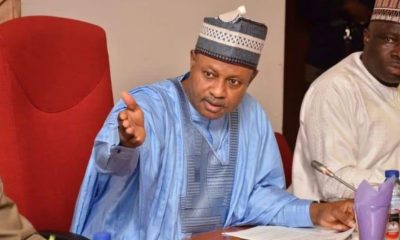

Gov Sani orders state University to stop collection of levy
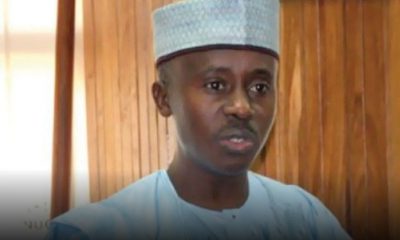

$500k Otedola Bribe: Supreme Court affirms ex-lawmaker, Farouk Lawan’s 5yrs jail term
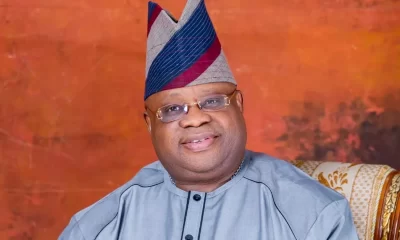

Adeleke approves N1.6bn bond certificates for 346 retirees
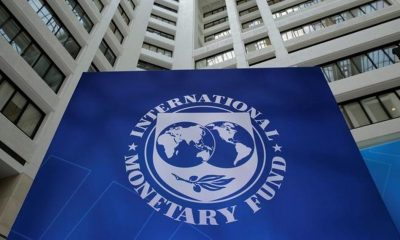

Fuel subsidy removal, FX reforms will boost Nigerian Economy – IMF insists
Trending

 Comments and Issues2 days ago
Comments and Issues2 days agoAs Ariwoola takes the judiciary to the top of the grease pole

 Business6 days ago
Business6 days agoNMDPRA Chief faces backlash over comment on Dangote Refinery

 Business1 week ago
Business1 week agoGlobal cyber outage disrupts flights, Banks, telecoms, Media

 Business1 week ago
Business1 week agoKPMG criticizes FG’s 50% windfall tax, foresees legal disputes

 Business5 days ago
Business5 days agoZenith Bank retains position as Nigeria’s Tier-1 capital leader

 News6 days ago
News6 days agoPhilip Shaibu officially joins APC, dumps PDP

 Education7 days ago
Education7 days agoJAMB reacts to allege age limit by ministry of education

 Comments and Issues5 days ago
Comments and Issues5 days agoOnanuga and the Surprise from Joe Igbokwe




